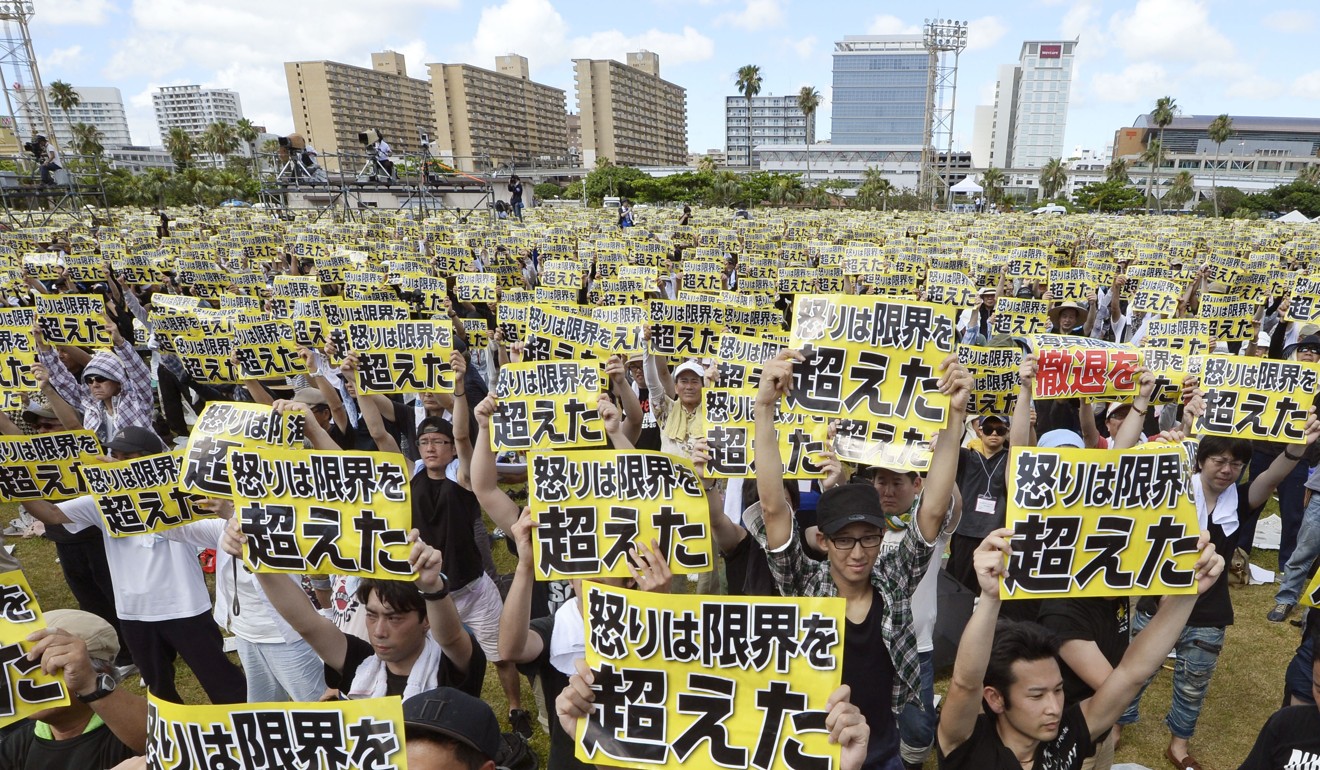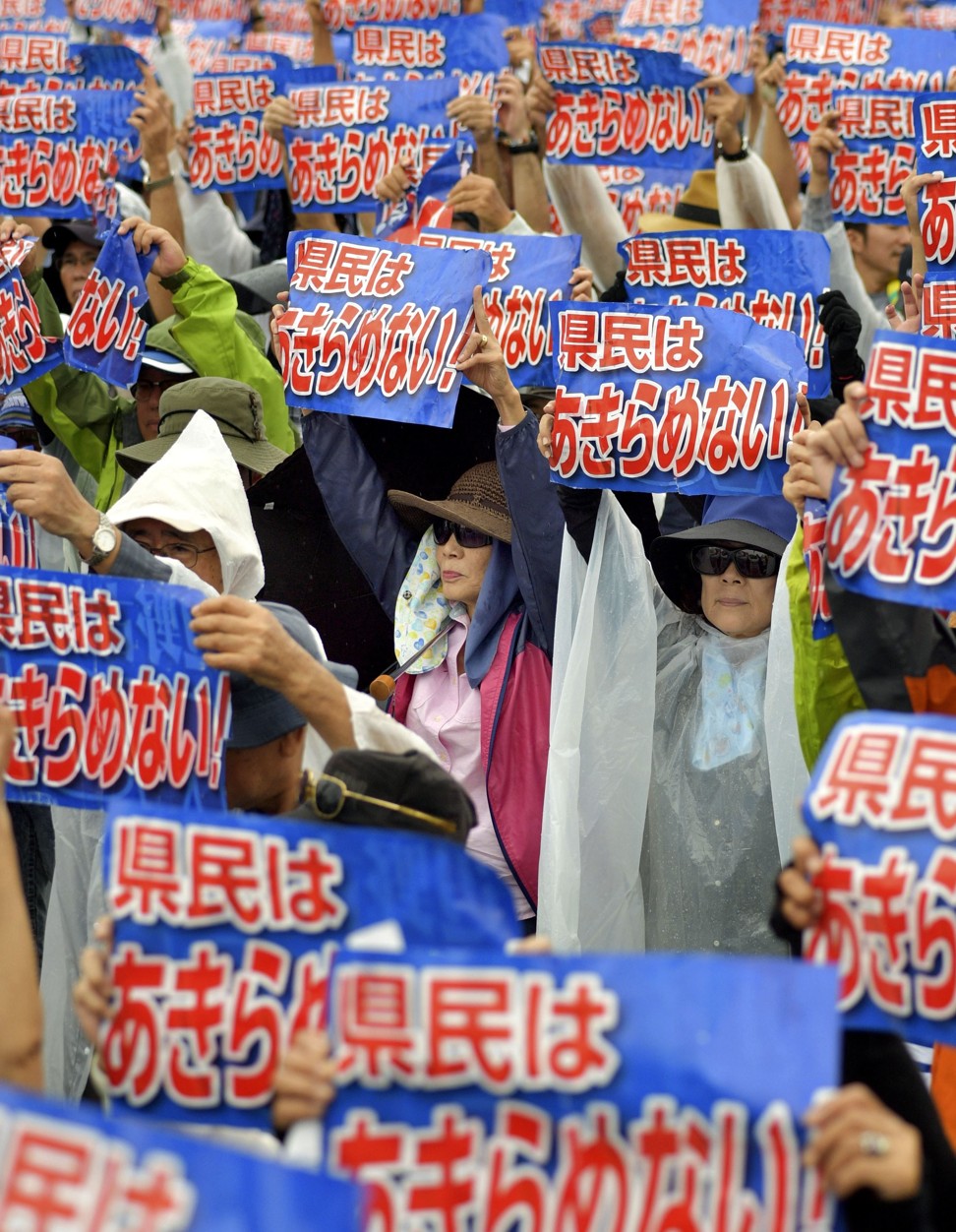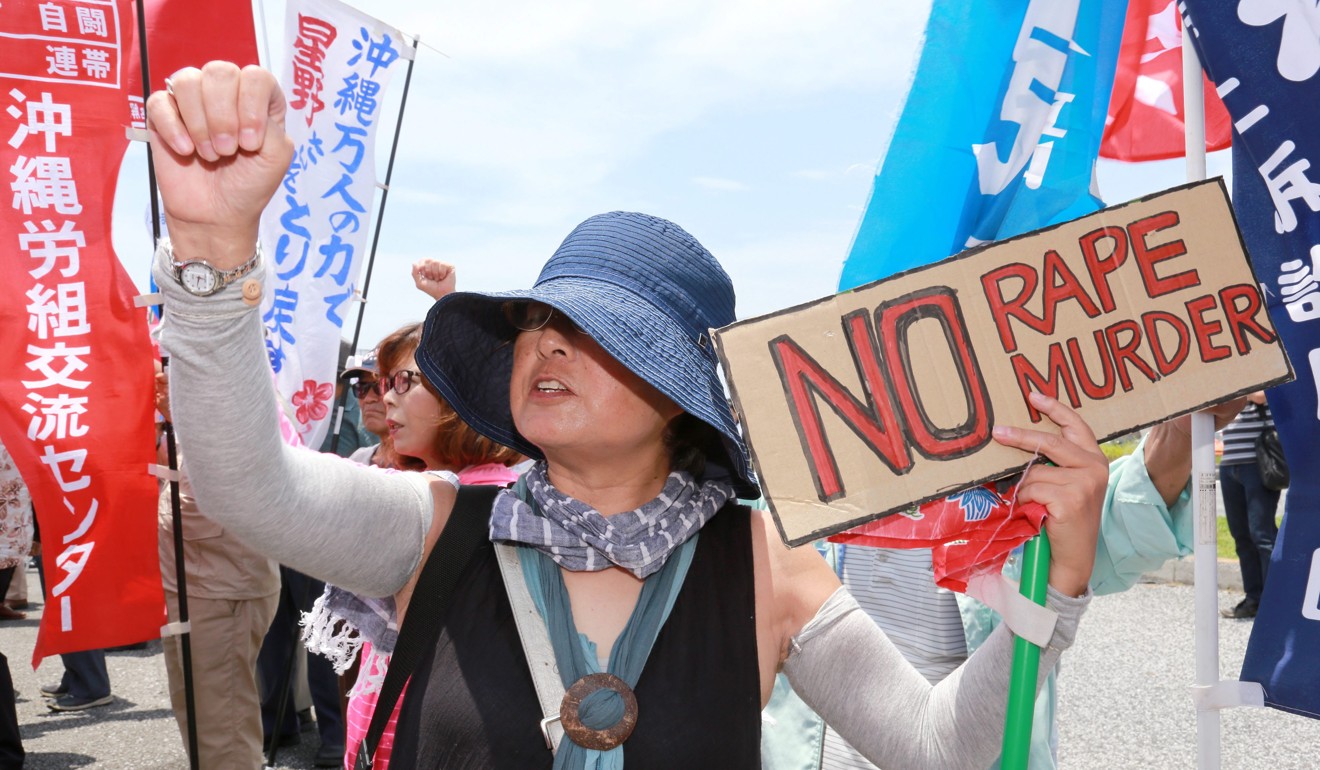
As US frets over China and North Korea, Okinawa looks stuck with its military base
- New Okinawa Governor Denny Tamaki is heading to the US hoping for a rethink of plans to relocate troops to an expanded base in his prefecture
- Worried about an expansionist Beijing and an unpredictable Pyongyang, America is likely to listen nicely – and ignore him
New Okinawa Governor Denny Tamaki will depart for a series of meetings in the United States on Monday apparently confident he can persuade politicians and government officials to abandon plans to relocate US troops and equipment to an expanded military base on the north-east coast of his prefecture.
Analysts said officials in Washington would listen politely to the governor – elected in a landslide vote in September that he insists reflects the opposition to the US military presence – and then largely ignore him. Geopolitical concerns in northeast Asia, revolving around an increasingly expansionist China and the regime in North Korea that remains deeply unpredictable, make the US military presence in Okinawa too important to the governments in both Washington and Tokyo.
About half the 54,000 US troops in Japan are based in Okinawa, which is also home to the largest US Air Force base in the region. Tokyo and Washington have agreed to close the US Marine Corps’ Futenma Air Station, in a heavily populated area in the central part of Okinawa Island, and move tens of thousands of personnel and their equipment to Camp Schwab, a Marine Corps base in the more remote northeast of the island where work is under way to reclaim an offshore area for new runways and associated facilities.

The US presence in Okinawa has been unpopular since the end of the second world war, when local residents’ land was expropriated for military facilities and has remained in US hands since. The military is also blamed for noise, pollution and damage to the environment, while criminal acts by members of the military invariably make the headlines – particularly cases such as murder or sex crimes.
The best outcome Tamaki might secure, the analysts said, would be a commitment from the US and the central government in Tokyo to shift some of the US military personnel to other parts of Japan or some of the outlying islands of Okinawa Prefecture. The governor will be aware, however, the residents who elected him will be disappointed in any deal that does not reduce the number of US troops in the prefecture.
He has very little in the way of leverage, particularly as Tokyo is becoming more proactive
The governor was nevertheless optimistic ahead of his departure, telling the South China Morning Post he had been “elected by the highest number of votes ever in an election for the governorship of Okinawa”.
He said he would “explain the current state of the burden imposed by the bases, the historical background of the construction of military bases in Okinawa and ask for understanding and cooperation in resolving this problem” when he met members of the US Congress and the government.
Tamaki was in Tokyo immediately before his departure for the US and held talks with Chief Cabinet Secretary Yoshihide Suga. The central government agreed to open talks with the prefecture in the search for common ground on the relocation of the functions of Futenma. Those talks will go ahead but it is considered extremely unlikely Tokyo will give ground.
An official from the division that handles US military issues at the Ministry of Foreign Affairs said: “We are going ahead with a consolidation plan that is based on the understanding that Futenma will be returned no later than 2022.

“Construction at Henoko [Camp Schwab] is going on at the moment and it is not possible to say at the moment when that will be finished but under the agreement between the governments of Japan and the United States, that will be completed no later than 2022.”
Stephen Nagy, a senior associate professor of politics at Tokyo’s International Christian University, said Tamaki had few reasons to be optimistic before he flies to New York, where he is due to give a lecture ahead of his meetings in Washington.
Japanese island goes missing off Hokkaido
“He has very little in the way of leverage, particularly as Tokyo is becoming more proactive in the region in terms of its security relationship with the US because of the rise of China,” Nagy said.
“He was elected on a platform of trying to stop the bases but Governor Tamaki is not a typical politician as he comes from a bicultural and bilingual background, which will perhaps give him some political capital in Washington. But the US is taking a stronger approach to China on security and the challenges are only deepening. And Okinawa is one of Washington’s key security assets in the region. The role of Okinawa is critical and that is not diminishing but increasing.”

Neither Tokyo nor Washington will be willing to compromise on the security that relies on the military presence on Okinawa, Nagy said, although they may agree to minor changes “that in no way compromise security”.
“Tokyo could agree to make some adjustments but they are going to make sure that there is no impact on national security and make it clear that nothing can be done instantly,” he said.
Despite the stalling tactics of the prefectural government over the last decade designed to delay or halt entirely the transfer to Camp Schwab, it is clear Tokyo holds the whip hand and is pushing ahead with construction of the new runways off the existing base, much to the displeasure of local residents and environmental groups.
Prime Minister Shinzo Abe’s government may make some minor concessions to Tamaki but it cannot be seen to capitulate to the governor, Nagy agreed. Okinawa’s only hope is that Tokyo shows a degree of pragmatism in dealing with the people of the prefecture and gives ground in some small way.
Whatever it cedes will not, however, appease most islanders who consider themselves exploited ever since the independent Ryukyu kingdom was subsumed into the Japanese nation in 1879.

